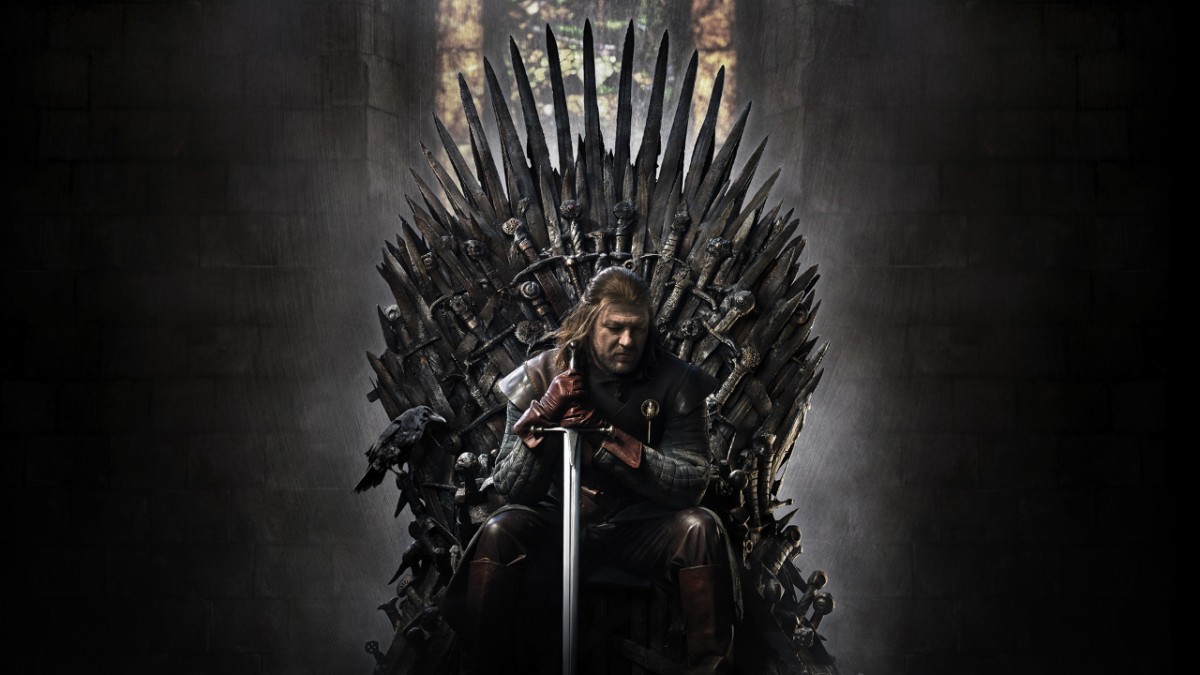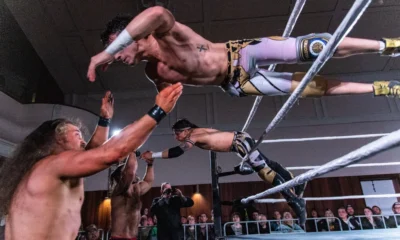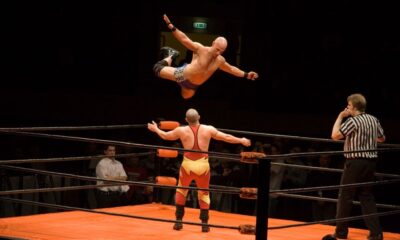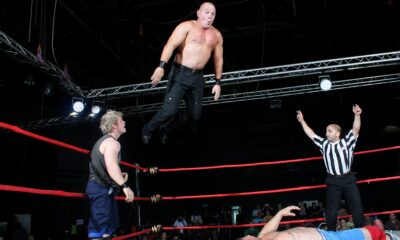
Seven thoughts at the heart of wrestling apply to ordinary life
Wrestling is more a theater than a sport. That’s why wrestling is not positioned as real competition for athletes. The winner is not the one who is faster, taller, or stronger, but the one who makes it look nice and scripted so that the story that wrestlers tell us has a reasonable continuation or logical conclusion. That’s why wrestling is more like Game of Thrones than the UFC.
Wrestling is not a scene from a movie, and it’s a movie in and of itself. It is not about muscular, sweaty men pretending to beat each other; wrestling is about how a whole story is told through the confrontation between two athletes (and wrestlers are certainly outstanding athletes), characters are revealed, the whole range of emotions is conveyed.
And importantly, the wrestling never ends. It’s not like a favorite TV series with a limited number of seasons – wrestling goes on all year round, and the characters are always developing. In this, wrestling is very similar to life itself. And that means that there are quite a few things to learn in wrestling.
You have to help your partner
This is one of the basic tenets of wrestling. Wrestlers are only opponents in the story, but in reality, they are partners who trust each other with their lives and health, and partners, as you know, need help. It’s very simple: you won’t make a reception if your opponent doesn’t help you. And first of all, you have to try not to make yourself look better, but to make your opponent seem stronger, more technical, and impressive. Then you’ll look the same.
“I need an enemy to find peace.”
Wrestling is unthinkable without confrontation. Every hero needs a villain. Superman would be nothing without Dr. Luthor, Rocky wouldn’t be as beloved without Ivan Drago, and Holmes would lose much of his appeal without Moriarty. Modern man is more inwardly directed than outwardly directed, so man needs an external stimulus, an external enemy, to move away from all-consuming reflection. It’s poetic. An enemy is needed to make the senseless make sense.
It takes a man to become a man – to defeat a man
This legendary catchphrase by the equally legendary Ric Flair has become the main justification for how wrestlers move up the ranks and win world titles. For a wrestler to become a top fighter, he must first defeat a top fighter; and then he will be seen as something serious. It’s the same in life: to be the man, you gotta beat the man.
Sometimes defeat only makes you stronger
Yes, it sounds like a trite cliché, but it sometimes works in wrestling (and in life). You will find in this essay examples that are inspiring. A decent defeat strengthens a wrestler in the eyes of the fans; for example, after losing to Bret Hart at Wrestlemania XIV, the legendary Steve Austin became a true superstar. An exhausted Austin lay in a pool of his blood, copiously laced with sweat and foam from his mouth, refusing to give up on his painful opponent.
Austin lost consciousness but gained tremendous fan respect and became the world champion a year later. More recent examples include Daniel Bryan, who lost his title at Wrestlemania XXVIII in a fight that lasted only 18 seconds. Fans became even more supportive of Bryan after that, believing the writers had treated him unfairly, and Daniel soon became WWE’s most popular wrestler. After garnering rabid love from the fans, Bryan managed to change management’s minds and still got his chance to become WWE Champion again.
Falling is a must
It’s impossible to imagine wrestling without falling on your back, a so-called bump, and without it, no technique would work. Correctly executed bump, a bump at the right time, only adds suspense and allows you to prepare the viewer for a counterattack. Fall is just as necessary in life: falls harden and add experience; there is no success without falls.
It’s the process, not the result, that counts
Grantland Rice, the founder of American sports journalism, wrote that when the Great Equalizer comes, he will not write the result of your match with a marker, but how you played in it and showed yourself. The idea is very romantic, but after all, happiness is a process, not the final result, so you should not evaluate your life solely on achievements and victories. How a person tries to reach his dreams is just as important. A wrestler’s legacy (just like a person’s legacy) isn’t measured by the number of matches won and titles won but rather by the impact a wrestler has left on future generations. Matt Osborn, a wrestler who competed since 1978 and became most famous in the second half of the ’80s, playing the role of a psycho clown in WWF, tried a lot of anthemics during his career but never won a single significant title. Too straight and honest, Osborne had no credibility with the management, and they made him perform in mostly stupid anthems over and over again. However, Matt’s natural talent, charisma, and attitude towards wrestling still earned him relative popularity with the fans and left a handbook for posterity on how not to give up and mold something worthwhile out of even the most ridiculous characters given to him by the writers. And this kind of recognition is much more important than any world title.
You have to love what you do
Wrestling is not an occupation that requires a lot of money or great fame. Very few wrestlers make good money solely by wrestling, and very few wrestlers become popular outside of the very small group of fans of the sport. Moreover: wrestling is more detrimental than beneficial because it is not just painful but wildly painful, and the constant falls on the back neck, blows to the head, and not go in vain. It should be understood that wrestlers often experience real pain, chasing the greater effectivity and heat, although wrestling – it’s not really. However, there are plenty of athletes worldwide whose profession is to act out theatrical fights in the ring, even though they probably know that money and fame are not what their chosen path promises. And, believe me, to wrestle for many years, you have to love what you’re doing fantastically. And I wish you all the same.


















